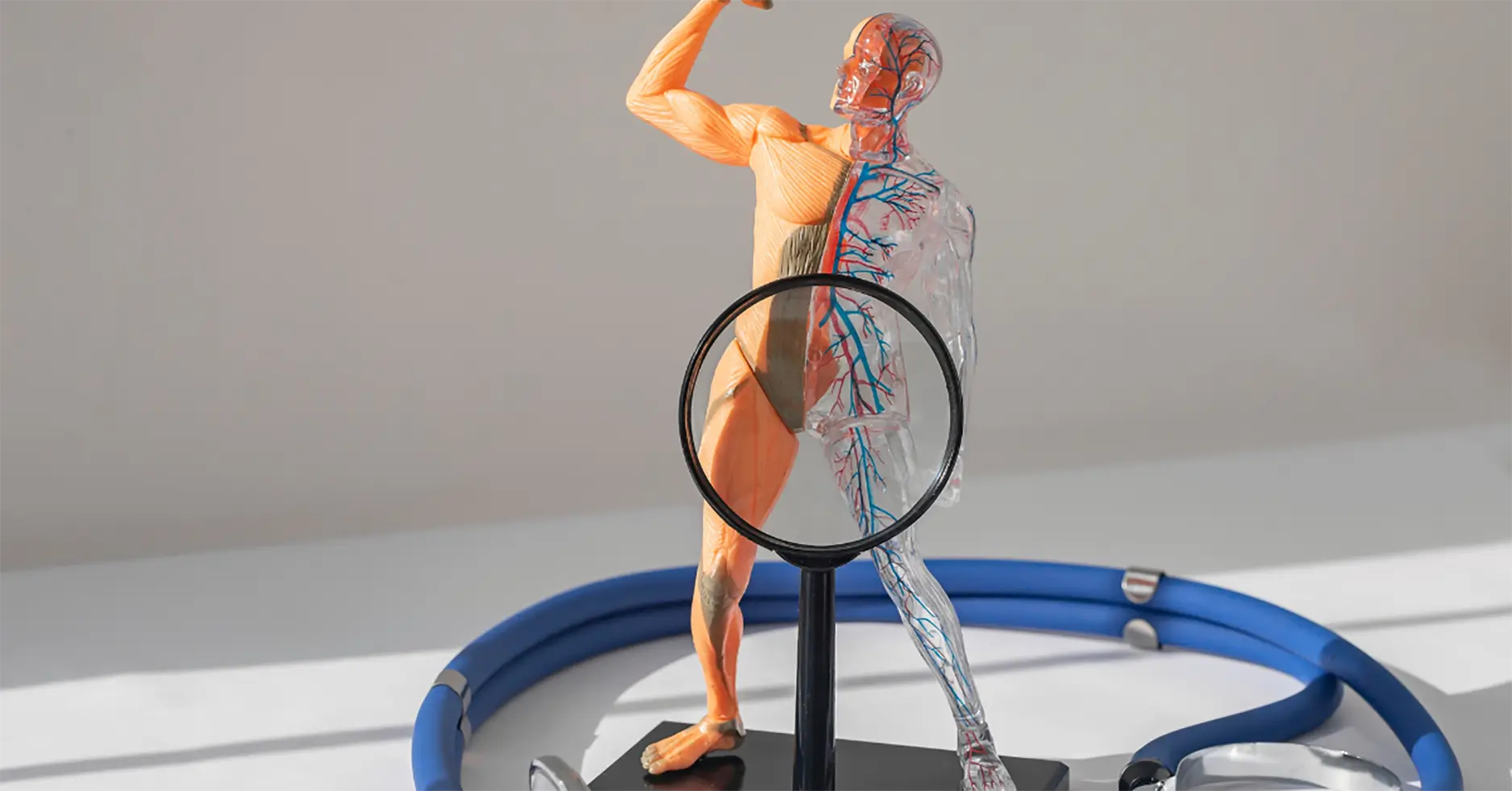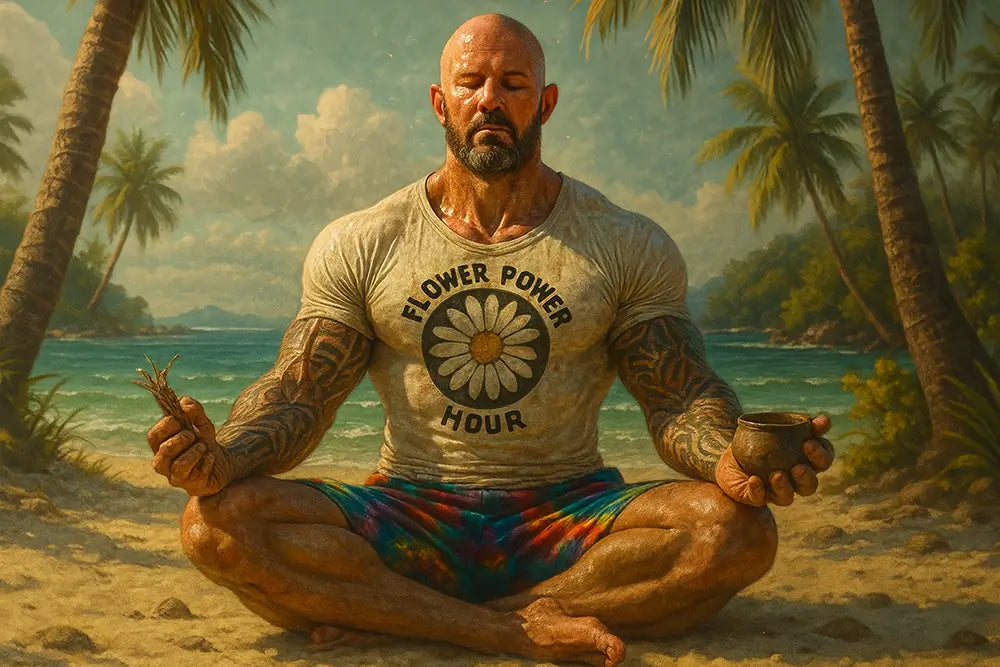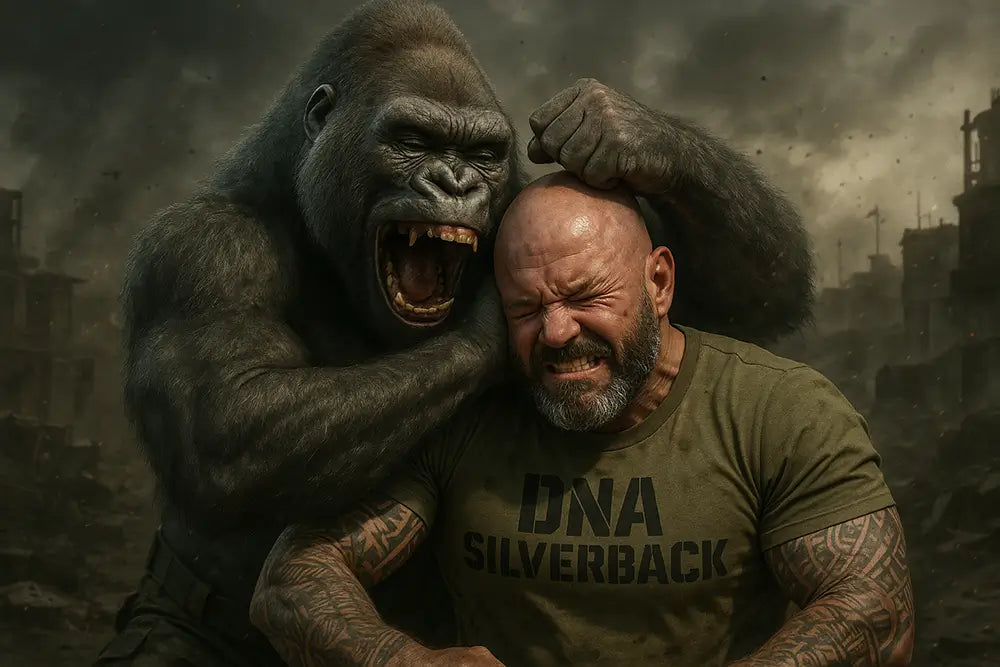testosterone
[ tes-tos-tuh-rohn ]
noun
Biochemistry. the sex hormone, C19H28O2, secreted by the testes, that stimulates the development of male sex organs, secondary sexual traits, and sperm.
Pharmacology. a commercially prepared form of this compound, originally isolated from bull's testes and now also produced synthetically, used in medicine chiefly for treatment of testosterone deficiency and for certain gynaecological conditions.
What is testosterone and how does it affect your health?
Testosterone is a steroid hormone that plays a key role in optimal hormonal health in men. It’s the primary male sex hormone responsible for the development of male sexual characteristics.
When you see or hear the word testosterone, you might think about sexual vigour, bodybuilders, or your favourite sports heroes. You rarely think about it in terms of your own health. The fact is you are a man because of testosterone!
Our hormonal health journeys start in the womb.
A baby’s sex is determined at conception by his or her genes. Embryos with XY chromosomes become boys, and those with XX chromosomes become girls.
However, throughout pregnancy it’s the exposure to hormones decided by your baby’s genes that affect a baby’s anatomy, physiology and even behaviour from birth.
It’s only when the foetus is around 7 – 8 weeks old that the actual gender specific body parts to develop. In fact, all babies would develop female sex organs if it weren’t for the male hormone testosterone.
Men (and women) understand the important role testosterone (and all hormones) play at puberty, but what happens after then? Why is it that women continue to be informed about their hormones for the rest of the life but men’s relationship with theirs is so disjointed?
That’s a whole other story! One that we will address in another blog.

Age and Testosterone Levels
Testosterone levels in men rise during puberty, peak around age 20. It naturally declines after the age of 30, although the prevalence of low T in younger men is increasing due to lifestyle factors.
Over the age of 40, the decline can become rapid and cause negative symptoms more commonly now recognised as Andropause. Also known as male menopause, Testosterone Deficiency (TD) and Hypogonadism.
As the dominant male hormone, it's crucial to your general health and wellbeing. However, most men rarely acknowledge its existence until there’s a problem.
Whilst testosterone does play a role in muscle mass by increasing levels of growth hormone, making any exercise that you do more likely to build muscle, the truth is someone’s appearance doesn’t have any direct correlation to their hormone levels.
In fact, many muscular men and fitness enthusiasts suffer from low T levels.
Lifestyle factors are negatively impacting modern man’s testosterone production, Including exercising too much or not eating a healthy diet. Obesity is strongly linked to testosterone deficiency with stress and alcohol known to deplete levels.
Low T and TD is such a common issue now (impacting 1 in 4 men – that’s millions in the UK alone) that it’s likely to be affecting men you know or indeed yourself without being aware of the symptoms.
The Role of Testosterone – Why It’s So Important To Men’s Health
In men it plays a key role in regulating:
- sex drive
- bone and muscle mass
- fat distribution
- muscle size and strength
- red blood cell production
- the growth of body hair
- sperm production
It’s produced in the testes of men, but also in the ovaries of women (obviously to a much lesser extent).
As you can see testosterone plays a role in numerous key functions across the body and much more than the just maintaining muscle mass. That is why it’s crucial that men pay attention to their hormonal health and try to keep their levels normal and in healthy ranges.
As with the development of knowledge and awareness about female hormonal health, scientists continue to make new discoveries about testosterone and the other roles it has in the body.
Brain:
In older men, higher testosterone levels have been associated with better performance on cognitive tests.
Muscles:
Testosterone helps men burn fat more efficiently. Testosterone increases levels of growth hormone which makes exercise more likely to build muscle.
Bones:
Testosterone increases bone density and tells the bone marrow to manufacture red blood cells. Low T levels can lead to reduced bone mass, fractures and osteoporosis.
Sex Organs:
One of the most documented roles of testosterone is in reproductive health. It’s key for healthy sperm levels and driving positive libidos. Sperm requires ongoing good levels of testosterone. Low T levels impact the amount of sperm produced.
Libido:
A loss of libido is often one of the first signs of testosterone deficiency as men’s desire to have sex (libido) also decreases as testosterone drops. All of these factors can lead to less frequent sex and sometimes cause Erectile Dysfunction (ED). This can have a real effect on partner relationships.
Skin:
Shrinking levels of testosterone in men can cause hair loss. Overproduction of testosterone may lead to excessive sebum production, which, in turn, may lead to acne which explains teenage breakouts as levels are elevated during puberty.
Mood:
The correlation between hormones and mood in women is well documented. Therefore, it shouldn’t come as a surprise that testosterone plays a role in optimal mental health in men although the exact mechanisms are unclear.
We know that:
- Cells in the brain have testosterone receptors that significantly affect mental health.
- Low T levels can often be misdiagnosed as depression due to the impact on mood and energy levels.
Decline in men’s hormonal health - Testosterone Deficinency
Testosterone is meant to naturally taper off with age (as does oestrogen in women) but other factors can cause testosterone deficiency and increasingly so in younger men.
Studies have shown that low amounts of the hormone have been associated with chronic disease, even among men 40 years of age and younger.
Decreased testosterone levels can also be caused by chronic illnesses and genetic diseases; certain types of medication; injury to the testicles; chemotherapy and pituitary gland disorders or tumours.
However, these do not appear to explain the ongoing negative trend in testosterone levels that have been well documented. Nor does the ageing populations as we know declining T-levels are considered a natural part of ageing do what has causing such dramatic changes in men’s hormonal levels in new generations, particularly in younger men?
A study on Testosterone Deficiency
Studies show that men’s testosterone levels have been declining for decades. The most prominent, a 2007 study in the Journal of Clinical Endocrinology and Metabolism, revealed a “substantial” drop in U.S. men’s testosterone levels since the 1980s, with average levels declining by about 1% per year.
That’s an enormous 40% reduction, with the negative trend equating to 10% decline in men’s testosterone levels per decade. It shows the significant testosterone deficiency among men.
The explanations for such alarming stats are somewhat unclear. However, they do point to modern lifestyles, in particularly the scale of the obesity issues, and external toxins.
Based on these declining stats, what does that mean for men’s hormonal health for the next generation?
Make sure you pay attention to yours today. As we know recognise with all aspects of our health, prevention is better than a cure. Take control over your personal hormonal health today.
Take our symptom checker to examine the symptoms of low testosterone and see if any of our natural hormonal health solutions could help you today.






Share:
Our Top 10 Testosterone boosting super foods.
Dictionary of Mens' Hormonal Health - Part 2